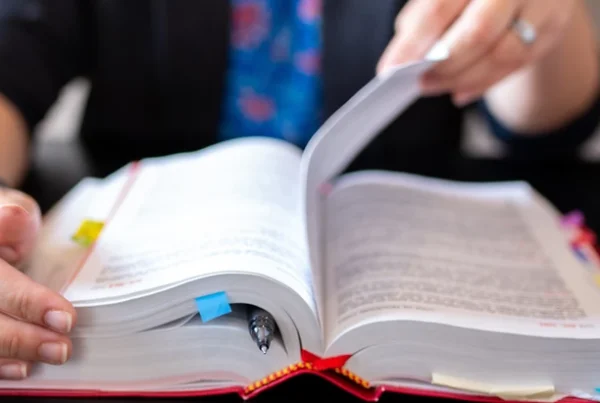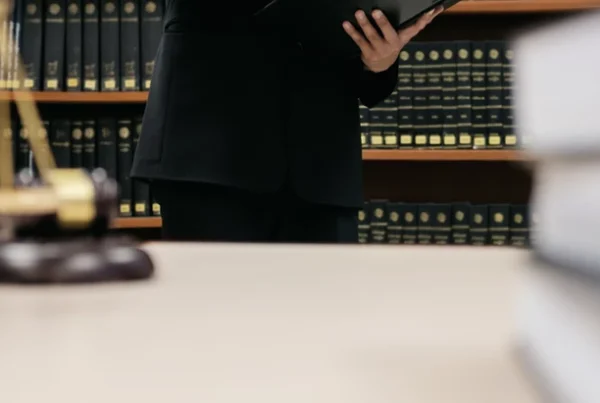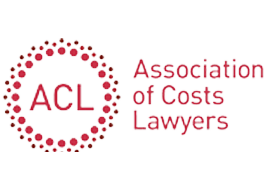Swift v Carpenter and Another [2020] Costs LR 1547 following the long-awaited decision last month concerning accommodation claims in personal injury litigation. The judgment concerns Part 36 enhancements payable under CPR 36.17(4) in respect of interest on damages and costs where the Claimant / Appellant had beaten her own Part 36 offer.
In summary:
-
The Appellant had recovered damages exceeding her Part 36 offer of £800,000 made on 1 July 2019, and it was common ground that the uplift on damages in the sum of £65,095.65 was payable under CPR 36.17(4), together with indemnity basis costs of the action after expiry of the offer, and interest on damages and costs.
-
The Respondent’s submission that the costs of the appeal up to 24 July 2019 should not be caught by the Part 36 offer failed. Whilst the successful basis of the appeal had not been formulated up to that point and an adjournment had been necessary because the Appellant had wished to reformulate the case, she had also advanced a valid argument for distinguishing the situation in Cheeseman v Bowaters [1971] 1 WLR 1773 relied on by the Respondent. Accordingly, she was entitled to the costs of the appeal on the standard basis until the Part 36 offer had taken effect, with indemnity costs thereafter.
-
As to interest on damages, the maximum which the court could award under CPR 36.17(4) was 10% above base rate, but such an award needed to be proportionate. Here, the case had been unusual, being a legal challenge in which there had been a long period between the relevant Part 36 offer and the judgment, during which the Appellant had been able to buy a house. It followed that the rate of interest called for was to be no greater than compensatory: that rate was 4.5%.
-
So far as interest on costs were concerned, the Appellant’s solicitors had been acting under a conditional fee agreement so that she had not had to discharge their fees, but in response, those solicitors had argued that the financial risk they had taken merited compensation at the maximum rate available. There was some validity in the arguments advanced by both sides. The appropriate rate was 4.5%.
Judgment on Costs and Permission to Appeal
1. THE FOLLOWING IS A JUDGMENT OF THE COURT: The respondent has made a number of concessions, namely that CPR 36.17(4) should apply; that the appellant is entitled to an uplift on damages of £65,095.65 for beating the Part 36 offer; that the appellant is entitled to indemnity costs after the expiry of the Part 36 offer, and that interest is recoverable on damages and costs.
2. The respondent argues that the appeal costs up to and including the adjournment of the appeal on 24 July 2019 (subject to a point on the date – see below) should not be caught by the Part 36 offer and that the appellant should bear the costs to that point. The submission is that the successful basis of appeal had not been formulated up to that point, and that the adjournment was necessary because the appellant wished to reformulate the case. The respondent relies on Cheeseman v Bowaters [1971] 1 WLR 1773. The appellant argues that the adjournment of July 2019 came after a without prejudice offer to accept £800,000 on 6 August 2018, and after a Part 36 offer of 1 July 2019, to accept £800,000. As to the reformulation of the case, the appellant argues that the judgment [25] and [221] recognises that the range of expert evidence advanced in the appeal would have been highly likely to be disallowed by Queen’s Bench Masters, and could not have been introduced below; further that the issue of the reversionary interest approach was raised only at the July 2019 hearing; and that the court made plain a desire to reach a properly informed conclusion so as to give enduring and workable guidance. The appellant further emphasises the costs risks taken by her and by her lawyers, particularly after July 2019, and stresses her efforts to settle the appeal. The appellant distinguishes Cheeseman v Bowaters on its facts.
3. In our view, the appellant has been successful in the appeal, has beaten the level of her own without prejudice offer, and the respondent’s Part 36 offer of 11 October 2018. We accept that the adjournment added to costs and that the reformulation of the case was necessary to provide the relevant evidence so as to reach the conclusions set out in the judgment. Efforts to settle the case after the adjournment are not relevant to the costs before the adjournment. We reject the argument from the appellant that she might have succeeded on appeal at an earlier date on a different basis, which we also consider irrelevant to costs. However, we accept that the appellant has advanced a valid basis for distinguishing this case from the situation in Cheeseman v Bowaters. In the light of the appellant’s without prejudice offer, the respondent’s without prejudice offer and subsequent Part 36 offer, we consider the appellant should have the costs of the appeal, on a standard basis, up to the date when the appellant’s Part 36 offer of July 2019 takes effect.
4. There appears to be an argument from the respondent that the costs falling under Part 36 arise only from 24 July 2019, the day after the hearing on July 23. This is not fleshed out: see the respondent’s skeleton [8]. The appellant counters this by detailed analysis in her skeleton [24]. It is not necessary to recapitulate those submissions.
5. We conclude that the appellant is correct in her analysis. The indemnity costs should therefore run from 23 July 2019.
6. The respondent argues that there should be no order in respect of the costs attendant on the appellant’s application to call Messrs Cropper and Smith, since the application was only necessary because the appellant’s solicitor misunderstood the existing directions. The appellant does not suggest there was no such error, and the error was conceded at the time. The appellant argues that these costs were incurred following the without prejudice offer of August 2018 and the Part 36 offer of 1 July 2019 and that the evidence was of value to the court.
7. In our view the respondent is correct in its argument. We emphasise that this point is confined to the costs of the application to call these expert witnesses and does not extend to the costs attendant on their instruction, reports and appearance.
8. The respondent argues that the appellant should pay the costs of the contested application to prevent the admission of the evidence of the respondent’s witness Mr Robinson. The respondent was right to rely upon him and the appellant should not have tried to exclude his evidence. The appellant argues that this is subject to the appellant’s Part 36 offer, that the application was late, that the respondent had already had the opportunity to seek such evidence and that the admission of the evidence was granted “as an indulgence”.
9. We refuse the respondent’s application. Mr Robinson’s evidence was perfectly relevant, but it was caught by the later Part 36 offer, and it was legitimate on the part of the appellant to seek to resist this late application. Once again, it should be emphasised that this application concerns only the costs of the application to admit the witness, and not to his preparation or the evidence itself.
10. The respondent argues for a lower rate of interest on damages than that sought by the appellant. CPR 36.17.4.1, at page 1229 of the White Book summarises the authorities. The maximum is 10% above base rate on the additional damages. The respondent emphasises that such an award must be proportionate, see OMV Petrom SA v Glenmore International SG [2017] 1 WLR 3465. In that case, the Court of Appeal emphasised that the level of interest awarded must be proportionate, inter alia, as a response firstly to the length of time between the offer and judgment, then to the questions whether the defendant took entirely bad points, whether the defendant behaved reasonably, despite the offer, in pursuing its defence and to the general level of disruption caused to the claimant by the refusal to accept the offer. In her submissions [25 to 28], the appellant relies on and quotes from McPhilemy v Times Newspapers Ltd (No. 2) [2001] EWCA Civ 993, and from OMV. Once more, we need not repeat the passages quoted.
11. In our view there is some merit in the respondent’s submissions on this issue. This was an unusual case. There was a legal challenge, and the process by which the eventual form of the appeal was reached was also unusual. There was a long period between the relevant Part 36 offer from the appellant and the judgment, and we accept that the strain on the appellant must have been considerable. However, we note that the appellant was in fact able to purchase a house. We do not consider that the respondent took “entirely bad points”. In our view there is no call for the rate of interest “to be greater than purely compensatory” so as to foster settlement, given the facts in this case. Therefore, we accept the respondent’s submission that the appropriate rate of interest is 4.5% on the additional damages.
12. The respondent also argues for a lower rate of interest on costs. In addition to the general points, it argues that the appellant has not had to discharge her lawyers’ costs, as they have been acting under a CFA. In reply the appellant argues, in essence, that there was an inequality of arms between the appellant, a vulnerable individual caught up in an expanding test case, and an institutional insurer respondent with deep pockets. There is also comment on the respondent’s offers in February 2020, which it is said may have been designed to split the appellant from her legal team. The appellant argues that the financial risks taken by the appellant, and by her legal representatives, merit compensation at the maximum rate available.
13. In our view there is some validity in the arguments advanced by both sides. There was a very long period after the Part 36 offer, and some of the respondent’s tactics may be thought to have been somewhat aggressive. However, the respondent’s own offers made it clear that they considered they faced a considerable litigation risk. In our view it would be appropriate here also to award interest at 4.5%.
14. The respondent accepts that it must make an interim payment against costs and interest. In the light of our rulings set out above, the appropriate award is £500,000.
Permission
15. Permission to appeal is refused.
16. The parties are directed to prepare a draft Order accordingly.


![Swift v Carpenter & Another [2020] Costs Award](https://www.athenelegal.co.uk/wp-content/uploads/2022/01/Swift-v-Carpenter-Another-2020-Costs-Award.webp)



